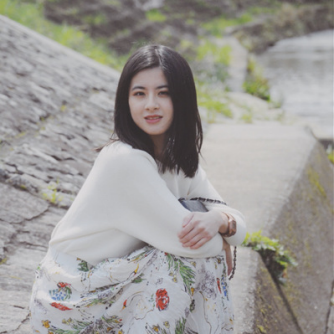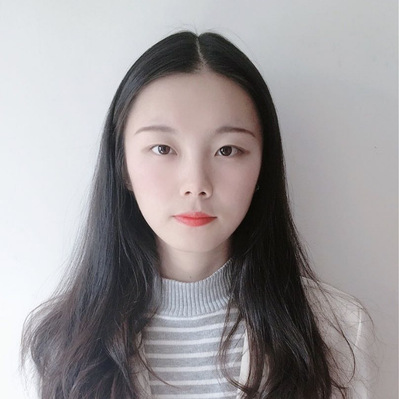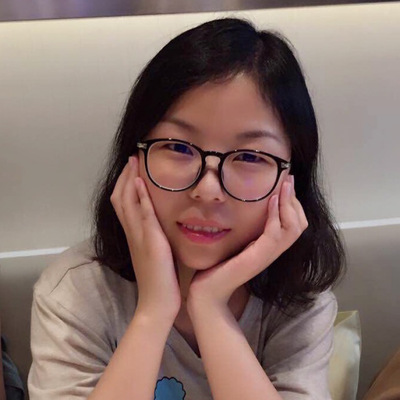The 3rd “People China Cup” International Japanese Translation Contest was co-sponsored by People China Magazine and the Japanese sub-committee of the Foreign Language Advisory Committee of the Ministry of Education, and co-organized by Guangdong Translators Association and Guangzhou Lianpu Translation Co., LTD. Nearly 4,000 contestants from more than 500 universities and enterprises from China and Japan participated in the contest. This contest consists of two categories: translation and interpretation. Each is divided into four groups: higher vocational college students, undergraduate students, graduate students and social examinees.
After strict evaluation by experts, the winners were announced on November 27, 2020. Undergraduate and graduate students from Department of Japanese have won several awards in this international translation contest. Chen Li, an undergraduate student, won the third prize of Chinese-Japanese Translation; Wu Kehui, Zhang Meng and Zhu Jian who are postgraduates won the second prize of “Chinese-Japanese Consecutive Interpretation” , the third prize of “Japanese-Chinese Translation” and Excellence Award of “Chinese-Japanese Translation” respectively.
In the following, they shared with us their experience in this contest.

Chen Li
Undergraduate Student
The third prize of Chinese-Japanese Translation
Instructor: Chen Linghong
As for Chinese-Japanese translation, there is a problem in how to properly translate Chinese expressions to Japanese. Actually there isn’t much difficulty in understanding the original text. However, since both China and Japan use Chinese characters in the meantime it makes it easy for us to be trapped in the Chinese way of thinking. When translating, we could be misled by the Chinese characters in the original text. Under the guidance of my tutor and by consulting data in corpus, I completed my translation.
In addition, different from Chinese, Japanese often omits some sentence elements in order to achieve specific effects. Therefore, how to convert long Chinese sentences into relatively short clauses needs thinking carefully. The translation of long sentences involves abundant use of saseru kei (causative voice), which makes them too lengthy. Therefore, I kept the first-person perspective unchanged and divided the long sentences on the basis of faithfulness, expressiveness and elegance. In particular, I made a lot of efforts in reaching the standard of “Elegance”, by which I mean to try to retain the style of the original in the translation at maximum.
In the process of revising my translation, I learned the differences between Japanese and Chinese expressions by communicating with my foreign teacher, Ms. Shimada. Moreover, I consulted my instructor Chen Linghong on the difficulties in translation and Ms. Chen was very patient in giving me detailed suggestions. By polishing my translation many times, I finally won the third prize of “Chinese-Japanese Translation” in the group of undergraduate students.

Wu Kehui
Graduate Student
The second prize of “Chinese-Japanese Consecutive Interpretation”
Instructor: Qiao Ying
I knew that there were as many as 4,000 contestants for the “People China Cup” translation contest. At that time, I was preparing for CATTI and another interpretation contest. Taking this contest as an opportunity to improve my ability, I signed up for Chinese-Japanese Consecutive Interpretation. The interpretation materials are of moderate difficulty, in which Chinese materials feature the most popular topic at present and Japanese materials focus on Japanese society and culture. However, a lot of training and solid basic skills in translation are needed to do well in Chinese-Japanese interpretation in a very short time. I completed the interpretation and tried my best to fully retain the information in the original text while speaking at a steady pace ensuring the fluency of my output.
Although the contest was only 5 minutes long, I still saw my shortcomings after the contest. I would like to express appreciation to my tutor and classmates who have been supporting and helping me. I will also bear in mind this valuable experience and make persistent efforts to improve myself.

Zhang Meng
Graduate Student
The Third Prize of “Japanese-Chinese Translation”
Instructor: Qiao Ying
The test material in the “Japanese-Chinese Translation” for graduate students happened to be in the style of Asahi Shimbun that I am quite familiar with. There are two reasons why I think it is familiar to me. First, I have done translation, proofreading and translation reflection of articles on my classmate's official WeChat account for about one year; Secondly, I reviewed and reflected on the translation I have done this year because of my tutor’s project.
Professor Gao Ning says that one’s level of mother tongue can determine his level of foreign language. When translating, I have a strong feeling for his words. There are not so many obscure expressions in the original text, but my Chinese translation is affected by Japanese grammar and vocabulary, with much use of Europeanized expressions. The translation was revised three times before it was finally finished. My thanks go to my instructor Qiao Ying for her guidance and other classmates in the group for their suggestions.

Zhu Jian
Graduate Student
Excellence Award of “Chinese-Japanese Translation”
Instructor: Qiao Ying
It is fulfilling for me to take part in this contest. What I have gained from this experience is more valuable to me than the result. Under the careful guidance of my tutor and through serious discussion with my senior, my translation, my Japanese knowledge level and critical thinking ability have improved. I will make persistent efforts to achieve better results next year!




